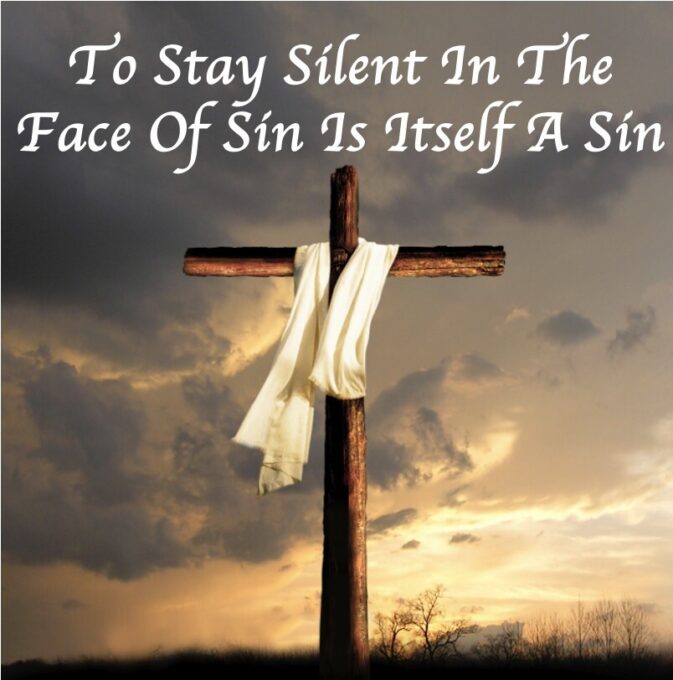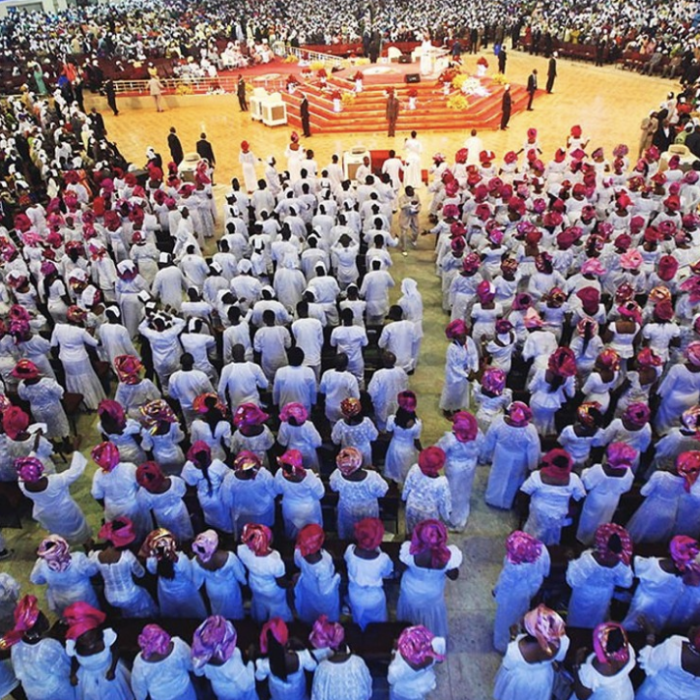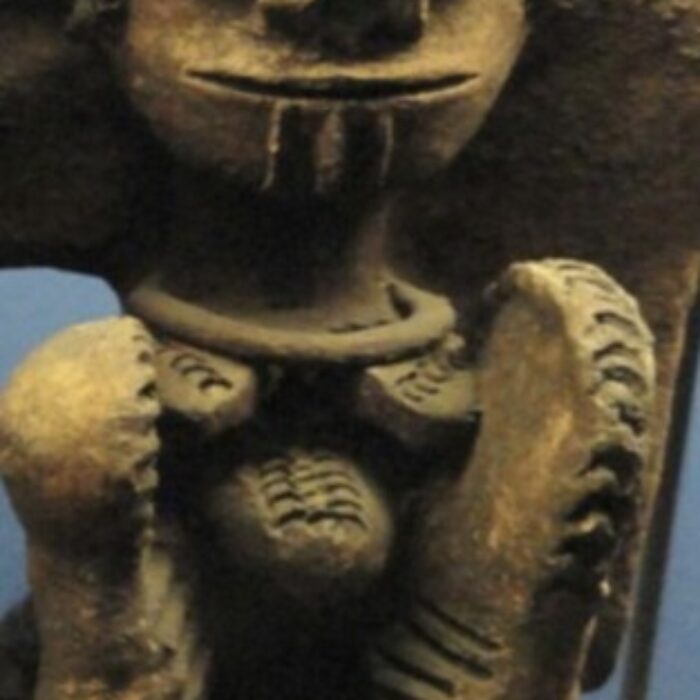By The Editorial Board
Despite widespread condemnation of President Tinubu for fraudulent activities, including forged documents related to his admission to Chicago State University and a certificate submitted to INEC, the usually vocal leaders of prominent mega-churches have maintained a surprising silence on the matter.
By virtue of their silence, these influential religious figures indirectly lend credence to Tinubu’s recurring sins. But staying silent in the face of blatant sin is itself a sin.
Their apparent reluctance to address or denounce Tinubu’s actions raises questions about their loyalty, suggesting that they may be more committed to Tinubu rather than the teachings of the Word of God they profess to adhere to.
It appears that their support for Tinubu may align with their earlier prophecies that he was chosen by God to become president. This might be fueling their fear that criticizing him now could undermine their prophecies and challenge their spiritual authority.
This deviation from religious tenets seems to put personal interests, perhaps financial and tribal, above genuine faith.
These same religious leaders had once declared that it was God’s will for Tinubu to ascend to the presidency, bringing hope to the long-suffering Nigerians and promising to restore the nation’s divine glory.
However, instead of bringing relief, the leader they championed has added to the people’s sorrow. Rather than seeing a divine restoration in Nigeria, the nation seems to be in turmoil caused by Tinubu’s reckless policies and personal sins. Under Tinubu, the country is a hellscape.
Clearly, these individuals, who position themselves as God’s envoys, appear more as self-serving opportunists than authentic spiritual leaders. Their refusal to address Tinubu’s evident misdeeds erodes their spiritual integrity. Their claim of conveying a divine message now seem dubious and lack authenticity. Only Nigerians, perhaps the uninformed, will continue to trust their words.
While these religious leaders remain silent, Tinubu’s public relations team, resembling narcissistic spin doctors, seems to operate on the belief that repeating a falsehood will eventually make it accepted as truth. However, many Nigerians are not susceptible to such tactics.
Tinubu’s stormtroopers flood the media, attempting to mock Nigerians’ intelligence by audaciously claiming that Tinubu didn’t forge a certificate he supposedly earned from CSU.
What his talking heads seem to forget is that in any other country not called Nigeria, issuing a bad check is a criminal offense, regardless of whether you have funds in the bank or even if the dubious check was cashed. It’s known as check fraud, and it’s punishable by law. Even if Tinubu’s claim of graduating from CSU is validated by the school, submitting a forged certificate to INEC remains a criminal offense.
It is hypocritical that every Sunday, these pastors stand before their congregations, admonishing them for their sins with great self-righteousness, proclaiming, “You have sinned and fallen short of the glory of God.” Yet, none of these religious leaders have directly addressed Tinubu’s numerous indiscretions (those who have commented have done so ambiguously and with a double-edged approach).
Figures such as David Olaniyi Oyedepo, Enoch Adejare Adeboye, Tunde Bakare, Gabriel Olutola, Ayo Oritsejafor, Emmanuel Oren, Elijah Abina, Prophet Israel Aladale Ogundipe, Bishop Kayode Williams, Senior Pastor Godwin Ube, Bola Odeleke, Emmanuel Omale, Christian Oyakhilome, William Folorunso Kumuyi, Godman Akinlabi, Chris and Oyakhilome, all seem to prioritize personal, tribal, party or political affiliations over their spiritual responsibility to uphold truth and morality. Instead of addressing major concerns about Tinubu, they choose to target those who highlight his misdeeds.
These religious leaders may eventually face the consequences of their actions, particularly as their prophecies and double standard are found to be unreliable and in conflict with their core principle of upholding truth in their teachings.
These self-proclaimed religious leaders disregarded Timothy’s counsel: “As for those who persist in sin, rebuke them in the presence of all, so that the rest may stand in fear” (1 Timothy 5:20). They also failed to follow Paul’s guidance in Ephesians 5:11: “Take no part in the unfruitful works of darkness, but instead expose them.”
Is it any wonder that prayers in Nigeria appear to go unanswered?






A lot has been said with regards to the outcome of Tinubu’s Chicago State University (CSU) case. A lot of fact twisting, skull drudgery, mind bending, reality warping and double-thinking strategies have been deployed with willing conspirators in the Nigerian media. The silence of these religious leaders is deafening and damning. Staunch supporters of Bola Ahmed Tinubu with a conscience have woken up from their slumber having seen the handwriting on the wall and the truth as evidenced by the hard facts from the CSU deposition and have washed their hands off the certificate forger. Others have doubled down, willing to drown on a forged mandate as long as it feeds them crumbs and the exaggerated illusion of self importance . The need to address the sudden muteness of these highly ‘revered’ religious leaders has become imperative. Your article was spot on. My take on this is that if these religious leaders are concerned about the political consequences of openly criticizing a president, which perhaps may include the fear of alienating their congregation or losing influence in political circles, then they should focus on their primary role, which is to address spiritual and moral issues rather than engage in selective political criticism, only when it suits their purpose.